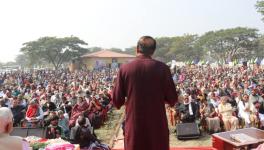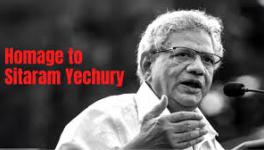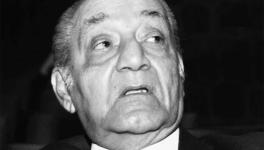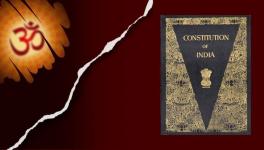Why Justice Shekhar Yadav's Partisan Remarks Call for Scrutiny, Potential Disciplinary Action
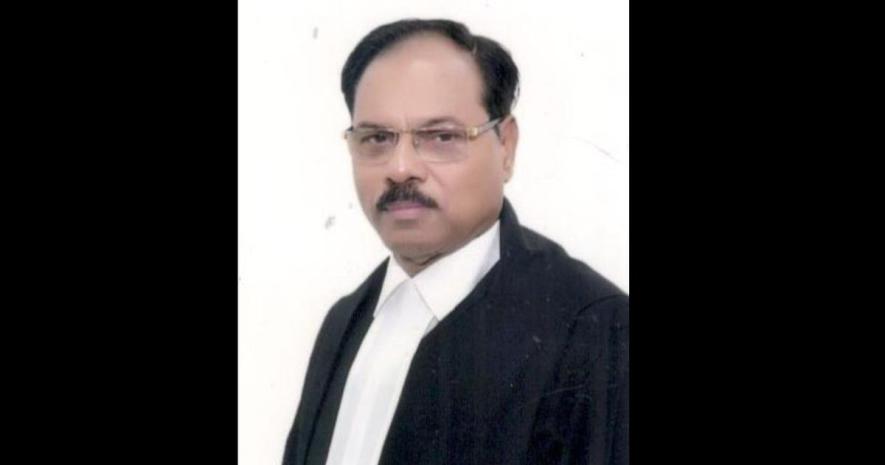
Justice Shekhar Kumar Yadav of Allahabad High Court, whose controversial remarks at a recent VHP event, have created outrage. (Image credit: Scroll.in)
The recent address by Justice Shekhar Kumar Yadav at a Vishwa Hindu Parishad (VHP) event has sent shockwaves through India's legal and constitutional landscape, exposing a deeply troubling trend of judicial abdication of fundamental democratic values. By explicitly stating that India will function according to the majority's wishes and that the welfare of the majority community supersedes all else, Justice Yadav has not merely stepped over a line – he has obliterated the very constitutional boundaries that define our nation's democratic essence.
Justice Yadav's remarks represent a horrifying descent into unabashed communal hate speech, employing derogatory terminology and inflammatory rhetoric that not only violates judicial ethics but fundamentally attacks the constitutional principles of equality and human dignity.
By using the deeply offensive slur "kathmullah" – a term commonly circulated in divisive social media platforms – and couching his prejudice in the language of national concern, the judge revealed a deeply problematic worldview that seeks to demonise an entire community.
His statements went beyond mere commentary, constructing a provocative narrative that portrayed Muslims as inherently violent, intolerant, and detrimental to national progress.
The judge's inflammatory remarks, suggesting that children from a particular community are predisposed to violence based on their exposure to animal sacrifice, represent a shocking violation of judicial responsibility. Such statements do not merely express a personal bias; they constitute a deliberate attempt to propagate harmful stereotypes, incite communal tension, and undermine the fundamental constitutional guarantee of equal respect and dignity for all citizens, regardless of their religious identity.
This is not an isolated incident. A few years ago, Justice V Chitambaresh, a sitting judge of the Kerala High Court, made equally controversial remarks, calling on the Brahmin community to agitate against caste-based reservation and making provocative statements about Brahmin virtues.
These instances reveal a disturbing pattern where judges are stepping beyond their constitutional role, using their elevated platforms to propagate divisive narratives that undermine the fundamental principles of equality and social justice.
A sitting High Court judge choosing to align with a Right-wing organisation and publicly articulating views that fundamentally contradict the principles of equality and secularism, represents a catastrophic breach of judicial ethics. The Constitution of India was meticulously crafted to protect the rights of all citizens, irrespective of their religious, cultural, or numerical status. Justice Yadav's statement is a direct assault on this foundational principle, suggesting a dangerous paradigm where minority rights are rendered meaningless.
The implications of such judicial pronouncements extend far beyond a single speech. When a judge of a high court publicly endorses majoritarian supremacy, it sends a chilling message to every minority community in India. It undermines the judiciary's sacred role as a neutral arbiter, transforming it from a protective institution to a potential instrument of systemic marginalisation. The very essence of judicial neutrality – that justice must be blind to numerical strength or communal identity – is dismantled by such rhetoric.
What makes this incident particularly alarming is its context within the VHP's broader ideological framework. The VHP has consistently been identified as an organisation that promotes divisive and exclusionary narratives. A sitting judge's participation and endorsement of such a platform is not merely a personal indiscretion but a fundamental betrayal of the judicial oath to protect and uphold the Constitution.
Judges occupy a unique constitutional position that demands absolute neutrality and an unwavering commitment to constitutional values. Participation in gatherings organised by extremist groups like the VHP fundamentally compromises the judiciary's institutional integrity and undermines the foundational principles of impartiality. These organisations are known for propagating divisive ideologies that directly challenge the secular, egalitarian ethos enshrined in the Constitution.
When a sitting judge associates with such groups, they do not merely express a personal political preference, but actively erode public trust in the judicial system's ability to deliver unbiased justice. The judiciary's legitimacy rests on its perceived neutrality and its role as a constitutional guardian that stands equidistant from all communal, religious, and political narratives. By participating in gatherings that promote exclusionary and polarising perspectives, judges risk transforming from neutral arbiters into potential instruments of systemic discrimination. Such actions not only violate the judicial oath but also send a dangerous signal to society that constitutional principles can be selectively interpreted or compromised.
The judge’s statements that indicate that the welfare and happiness of the majority overrides those of others, is a direct repudiation of the principles established in landmark judgments that have consistently affirmed the rights of minorities. It contradicts decades of judicial precedent that have positioned the judiciary as a critical safeguard against potential majoritarian excesses. This is not just a slip of the tongue, but a deliberate articulation of a worldview that threatens the very fabric of India's constitutional democracy.
Moreover, such judicial statements have a cascading effect on the broader societal perception of legal institutions. When judges begin to echo partisan narratives, they erode public trust in the judiciary's ability to deliver impartial justice. For minority communities, already experiencing systemic challenges, such pronouncements reinforce feelings of vulnerability and marginalisation.
The legal fraternity, constitutional experts, and civil society must respond to this incident with unequivocal condemnation. Judicial accountability is not just about maintaining procedural propriety but about upholding the fundamental ethos of constitutional morality. Justice Yadav's statements demand immediate scrutiny and potential disciplinary action.
India's constitutional framework is predicated on the principle that every citizen, regardless of their numerical strength or communal identity, deserves equal protection and respect under the law. When a high court judge suggests otherwise, it is not just a personal opinion – it is a direct challenge to the democratic principles that form the bedrock of our nation.
The time has come for a robust reaffirmation of the judiciary's foundational commitment to secularism, equality, and justice for all.
Judges are not “masters above the roster”; they are its most critical guardians. Their fundamental responsibility is to uphold the Constitution's sacred promise of equality, not to undermine it through inflammatory statements or partisan affiliations. Every judicial utterance must reflect the profound constitutional commitment to protecting the rights of all citizens, particularly those most vulnerable.
The judiciary's role is not to echo majority sentiments, but to ensure that the rights of minorities are robustly protected, even when—and especially when—such protection goes against popular or political currents.
The Constitution's core principle of equality is not a mere theoretical construct, but a living, breathing commitment that requires active judicial defence. By making statements that suggest some citizens are more equal than others, judges do not just fail in their duty; they actively corrode the democratic foundations that guarantee every individual's dignity and rights, regardless of their numerical strength or social position.
The judiciary's ultimate allegiance is not to political rhetoric or communal narratives, but to the constitutional vision of a just, secular, and inclusive society where every citizen's rights are inviolable and equally protected.
The writer is an advocate. The views are personal.
Get the latest reports & analysis with people's perspective on Protests, movements & deep analytical videos, discussions of the current affairs in your Telegram app. Subscribe to NewsClick's Telegram channel & get Real-Time updates on stories, as they get published on our website.









